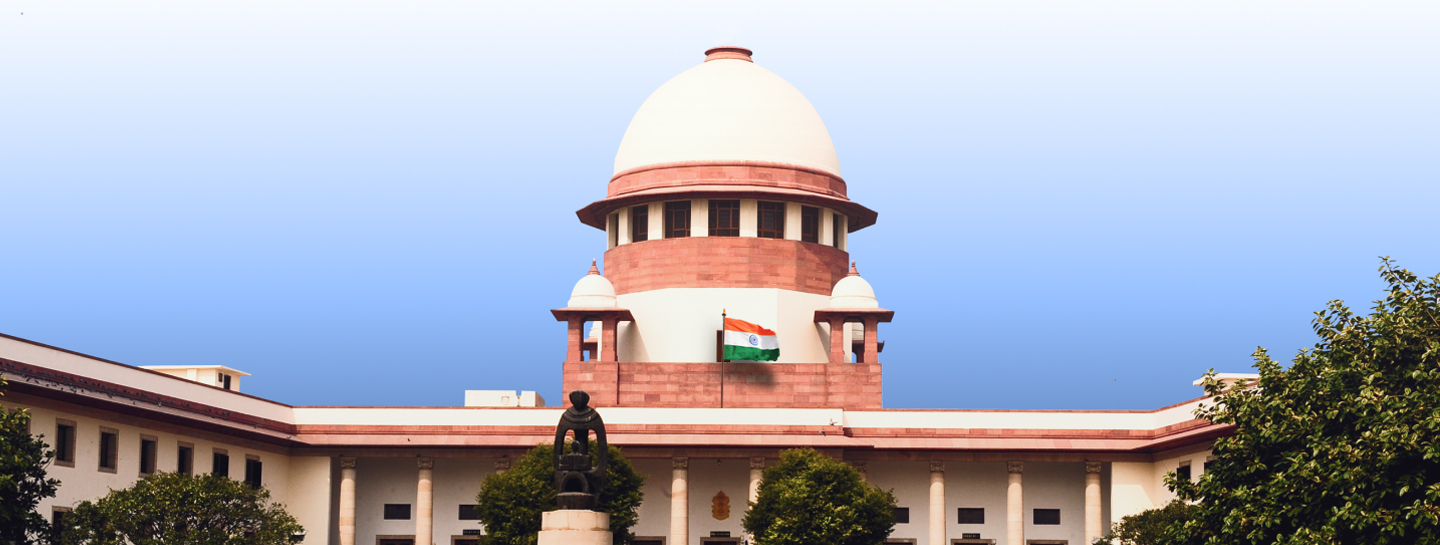Contempt Plea Filed Against Gujarat Officials for Alleged Illegal Demolition of Religious Sites: Supreme Court to Hear the Case
A petition has been filed in the Supreme Court of India seeking contempt of court action against officials of the Gujarat government, including the Collector from Gir Somnath, for their alleged involvement in the illegal demolition of religious structures such as the Dargah Mangroli Shah Baba, an Eidgah, and several other sites located in Prabhas Patan, Veraval, Gir Somnath. The petition accuses the officials of violating a previous Supreme Court order and engaging in demolitions without proper notice or opportunity for the affected parties to be heard.
The contempt petition was brought forward by the Summast Patni Muslim Samaj, a community group, which is now requesting the initiation of contempt proceedings against several key officials, including the Gujarat State’s Principal Secretary, the Collector and District Magistrate of Gir Somnath, and the Superintendent of Police (SP) of the same district. The plea underscores that these officials acted in contempt of the Supreme Court’s interim order dated September 17, 2024, which placed a nationwide stay on demolitions without prior permission from the court.
According to the petition, the government officials executed the illegal demolitions in the early hours of September 28, 2024. The structures affected included centuries-old religious places such as mosques, eidgahs, dargahs, mausoleums, and even residential buildings associated with the Mutawallis (caretakers) of these dargahs. The plea highlights that the demolitions were carried out without issuing any prior notices, thereby denying the affected parties any opportunity for a hearing—a violation of legal procedures and natural justice principles.
This move by the Gujarat government officials has raised serious concerns, especially given that the Supreme Court had already imposed a stay on demolitions in its September 17 order. The plea emphasizes that these actions constitute blatant disregard for the rule of law and judicial authority, as the officials proceeded with the demolitions in spite of the Supreme Court’s clear directions.
The Supreme Court, in an order issued on September 17, 2024, had imposed an interim stay on any demolition activities across the country without the court’s explicit permission. This order was a response to growing concerns about demolitions being used as punitive measures by various state governments, particularly against individuals accused of crimes or other misconduct. The court invoked its special powers under Article 142 of the Indian Constitution to ensure that no demolitions could occur without appropriate legal scrutiny and judicial oversight.

However, the court did clarify that this stay on demolitions would not apply to cases involving encroachments on public roads, footpaths, railway lines, or water bodies. This distinction was made to allow state governments to address essential public infrastructure needs while preventing misuse of demolition powers in punitive or retaliatory measures against accused individuals or vulnerable communities.
Despite this interim order, the petitioners argue that the Gujarat government officials proceeded with the demolitions of the religious sites without seeking the required permission from the court, thus breaching the directives issued by the Supreme Court. The petition also asserts that the officials did not issue any notices or offer any form of legal recourse to the affected parties before initiating the demolitions, further aggravating the situation.
The contempt petition was mentioned before the bench of Chief Justice of India (CJI) DY Chandrachud on October 1, 2024. However, the plea has been scheduled for hearing today before another bench led by Justices BR Gavai and KV Viswanathan. This bench had previously stayed demolitions in another case on October 1, and now, it will hear this new contempt plea along with other similar petitions regarding illegal demolitions in various states.
The Summast Patni Muslim Samaj’s petition aims to hold the Gujarat officials accountable for their actions, arguing that their disregard for the Supreme Court’s September 17 order is not only a legal violation but also an affront to the judiciary’s authority. The petitioners are seeking the court’s intervention to impose appropriate sanctions on the officials involved and to prevent further illegal actions against vulnerable communities.
This case is not an isolated incident. A separate contempt of court plea was also filed recently by 47 residents from Assam, alleging that illegal demolitions had taken place in violation of the same Supreme Court order.
The September 17 order, which stayed demolitions across the country, was prompted by various state governments using demolition as a punitive measure against individuals accused of crimes, often without due process or notice. The court’s direction aimed to curtail these actions, emphasizing that no state government could bypass legal procedures to demolish properties as a form of punishment.
The bench led by Justices BR Gavai and KV Viswanathan will likely address these broader issues of unlawful demolitions in its hearings. The court is expected to weigh in on the legal ramifications of state actions that defy its orders, as well as set clear guidelines to prevent further misuse of demolition powers by state authorities.

The contempt of court petition filed by the Summast Patni Muslim Samaj against Gujarat government officials raises serious questions about the legality of the state’s actions concerning the demolition of religious sites in Gir Somnath. The case underscores the ongoing tensions between state authority and judicial oversight, particularly in the context of demolitions being used as punitive measures without due process.
As the Supreme Court prepares to hear the case, it will need to address not only the specific allegations in this instance but also the broader issue of state governments overstepping their bounds by using demolitions as a tool of retribution. The outcome of this case could set a significant precedent for how future demolition cases are handled, particularly in terms of ensuring that judicial orders are respected and that vulnerable communities are protected from arbitrary state actions.


